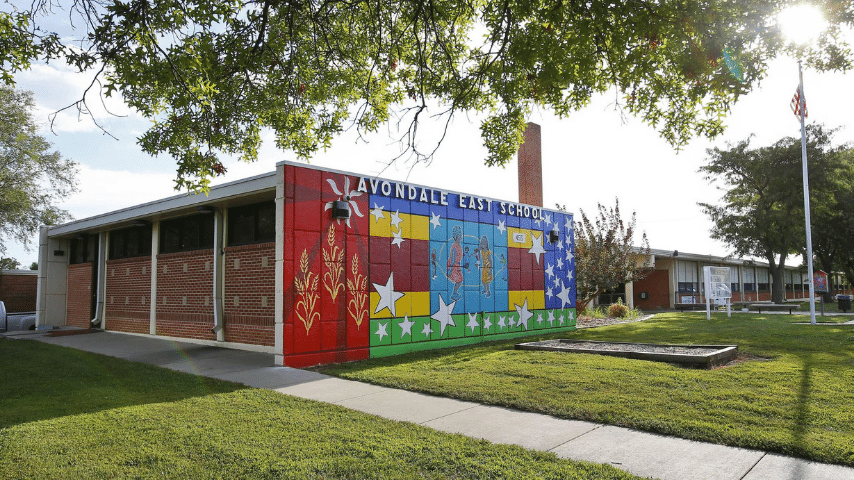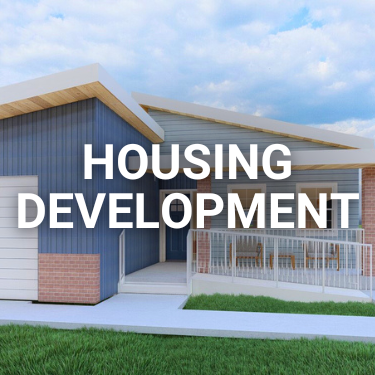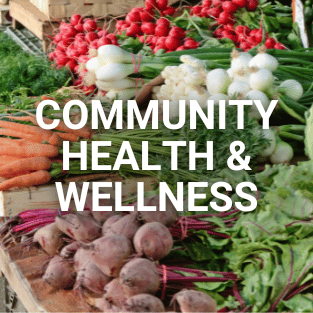OUR APPROACH
Intentionally walking beside neighbors through loving relationships and strategic development to accomplish the holistic transformation of neighborhoods in Shawnee County.
Empowering Local Solutions
We recognize that outsiders can't solve community challenges alone. Traditional top-down approaches often fall short. That's why we take a grassroots approach, collaborating with residents to identify existing strengths and partner with them to create long-term, positive change. We believe the most creative and sustainable solutions come from the very neighborhoods they impact.
SENT's 7 Core Values
By relocating, a person understands most clearly the real problems facing people in a community; and then he or she may begin to look for real solutions. Relocation transforms “you, them, and theirs” to “we, us, and ours.” Effective community development plants and builds communities with people who have a personal stake in the development of their neighborhoods. Relocation is community-based in the very essence of the word.
SENT seeks to equalize available resources, not just income, but opportunities to thrive. When people intentionally love their neighbor and their neighbor's family the way that person loves himself or herself and family, the result is redistribution - a just distribution of resources. When people with resources commit to living in a community, seeking to be good neighbors, being examples of working for justice for the entire community and utilizing their skills and resources to address the problems of that community alongside their neighbors, then redistribution is being practiced.
True reconciliation means overcoming obstacles to understand and respect one another's race & culture. This is relational and intentional - taking effort and humility from all involved. Without true reconciliation, a thriving community together is out of reach.
Often, communities are developed by people outside of the community who bring in resources without taking into account the community itself. Being committed means listening to the community residents, and learning their dreams, ideas, and thoughts, understanding that the people of the community are vested treasures of the future.
The primary goal of leadership development is to restore the stabilizing glue and fill the vacuum of moral, spiritual, and economic leadership that is so prevalent in underserved communities by developing leaders. This is most effectively done by raising up leaders from the community who will remain in the community to live and lead. This is what SENT seeks to do.
There is never a simplistic answer to problems within a community. People will say that the problem is physical, spiritual, social, or educational. Of course, each may be a problem, but each is only part of the larger whole. A holistic approach deals with the social, economic, political, cultural, spiritual, emotional, physical, moral, judicial, educational, and familial issues of each community. This is what SENT works towards.
Empowering people as community developers to meet their own needs is vital. Oftentimes, community development creates dependency - but empowerment avoids doing for people what they can do for themselves. Empowerment is about working with community members instead of working for them. Empowerment affirms each person's dignity.
The most creative long-term solutions are coming from grassroots and community efforts - from people who see themselves as ambassadors in their neighborhoods and communities.

"Go to the people, live among them, learn from them, love them. Start with what they know, build on what they have: but of the best leaders, when their task is done, the people will remark, 'We have done it ourselves.'" - Ancient Chinese Proverb
"…it is far better to enter the neighborhood as a learner than an initiator." - Robert D. Lupton, Toxic Charity
"Authentic relationships with those in need have a way of correcting the we-will-rescue-you mind-set and replacing it with mutual admiration and respect." - Robert D. Lupton
“For most, reconciliation will not happen as a part of a normal course of events. It has to be intentional.” ― Wayne Gordon, Do All Lives Matter?
"Community transformation is about the quality of neighbors, not the quality of programs." - Robert D. Lupton, Charity Detox
“Misery (misère), the French sociologist Eugène Buret once remarked, “is poverty felt morally.”
― Matthew Desmond, Poverty, by America
"The gifts that we discovered multiplied. We were pleased to see that neighbors reached out to each other more often. And neighbors who used the gifts of other neighbors began to see the abundance that was both around them and within themselves. Also, when people from outside the neighborhood went “inside” and hired someone to cook a meal, or bought a piece of art, or got their nails done, they began to see ostensibly needy people as artists, economists, musicians, chefs, and entrepreneurs." - Excerpted from “Having Nothing, Possessing Everything: Finding Abundant Communities in Unexpected Places,” by Michael Mather
"If poverty persists in America, it is not for lack of resources." - Matthew Desmond
"Mercy combined with justice creates: immediate care with a future plan, emergency relief and responsible development, short-term intervention and long-term involvement, heart responses and engaged minds." - Robert D. Lupton (Toxic Charity)
"We don't heal in isolation, but in community" - S.Kelley Harrell
"Helping strategies, if indeed they are to be ultimately helpful, demand careful examination of long-term implications. There is no guarantee that unexamined charity will have a redemptive outcome simply because it ‘seems right’ or feels good to the giver." - Robert D. Lupton, Charity Detox
We do this through our 3 Core Strategies
When we walk alongside the marginalized and vulnerable with loving relationships, we begin to understand their struggle first-hand because we are rooted in their community. The community becomes inspired with love, hope, and expectation for change and restoration.
When life-giving resources are fused with natural assets and abilities found within a neighborhood, the people develop dignity and ownership. These outside and Indigenous resources work together to empower the residents toward healthy transformation.
Dreams and aspirations are stirred, leaders are developed, and an entire community is transformed through life-changing experiences. A community can change from “they, them, and theirs,” to “we, us, and ours.”
How do we do this?
We operate with a strengths-based approach, continually identifying what we have and how we are growing. We recognize that key resources, like early childhood education, the Southside Filling Station, the Beat the Heat Initiative, and Mental Health Support Groups, help bridge the gap between where we are and where we want to be.


"Our lives begin to end the day we become silent about things that matter."
- Dr. Martin Luther King, Jr. -

